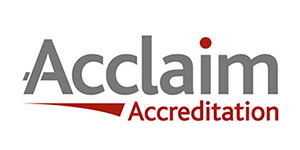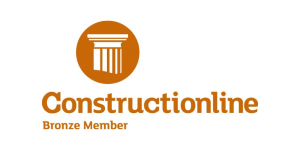
Different Types of Concrete With Their Application
Concrete is the pillar of every construction project. If you look around, from roads, sidewalks, buildings, and floorings, it is everywhere. However, a single type of material can’t fulfil diverse construction requirements. For this reason, different concrete variants are prepared according to application. To give you a better idea about various types of concrete, we have described each in detail below. So, without any further delay, let’s have a look.
Different Concrete Variants With Their Respective Application
Rapid Setting Concrete
This concrete variant is suitable for projects with tight deadlines. It only takes a few hours to settle, while the standard concrete needs about two days for the same. It considerably saves time in a construction project and helps finish the work within the deadline.
Moreover, rapid setting concrete keeps the project expenses under control. As it settles only a few hours after pouring, the workers can resume work after a short time. This way, the rent of machinery and labour is not wasted which is beneficial for the project.
Applications of Rapid Setting Concrete
- Footpaths
- Repair Work
- Fence Posts
- Paving
Self Compacting Concrete (SCC)
When using standard concrete in a construction project, considerable time and effort go into material compaction. It is a process of maintaining a uniform consistency in the mixture by releasing trapped air bubbles. Generally, the workers have to compact the concrete manually.
Self-compacting concrete is a suitable solution to this problem. After pouring, it compacts automatically without any extra effort. So, in the meantime, the workers can complete any other task. This way, self compacting concrete is beneficial for fast and value-for-money construction.
Applications of Self-Compacting Concrete
- Columns
- Pile Foundations
- Complex Structures
- Repairing Work
- Drilled Shafts
- Earth Retaining Systems
Fibre Reinforced Concrete
Mesh arrangements are generally used over the slab area to provide the required strength to the respective structure. However, this approach consumes a lot of time as the workers need to tie the steel bars to form a mesh.
Talking about Fibre reinforced concrete, it is prepared while keeping this concern in mind. Small metal or plastic fibres are added directly to the concrete mixture, which ensures high strength levels in the structure. It helps eliminate the hassle of creating a mesh arrangement before the concrete pouring.
Application of Fibre Reinforced Concrete
- Aircraft Runways
- Warehouse Flooring
- Elevated Decks
- Tunnel Lining
Waterproof Concrete
Concrete structures that regularly stay in contact with water can lose their durability and strength with time. For this problem, waterproof concrete is the perfect construction material. Chemical admixtures are added to this concrete at mixing time to make it waterproof.
With the help of waterproof concrete, you don’t need to get bothered about the adverse effects of moisture and water on a structure. Moreover, this construction material keeps the respective structure’s appearance intact.
Applications of Waterproof Concrete
- Dams
- Parking
- Water Treatment Plants
- Swimming Pools
- Tunnels
- Ports and Docks
Coloured Concrete
Coloured concrete has become an essential requirement for various construction projects nowadays. If the floors and walls of a particular building need to be of a specific colour, applying paint is not the best option. Because it eventually wears with time and leaves the respective structure with faded colours.
A suitable solution is to use coloured concrete to provide the structure with the desired look in the first place. Unlike paint, the colours in this type of construction material don’t fade away with time. This makes it a long-lasting construction solution.
Applications of Coloured Concrete
- Parking
- Basement Floorings
- Countertops
- Patios
- Roads
- Garage Floors
Foamed Concrete
Foamed concrete is a mixture of regular concrete with a foaming agent and gas. This material is best suited for construction projects that require the structure to have thermal resistance capabilities. This way, buildings and structures are safe from fire damage.
Moreover, this construction material has the property of sound insulation. The air gets trapped inside the construction material, making it lightweight. The key features of this construction material are its free flow ability and no need to be compacted.
Applications of Foamed Concrete
- Insulating Floor Screeds
- Precast Blocks
- Trench Backfill
- Pipeline Abandonment
- Embankments
Conclusion
After going through the above variants of concrete and their application, one can understand the importance of each in a construction project. You can choose the suitable ones for your project according to the requirement. However, the material must meet the best quality standards to provide the respective structure with the desired strength and finish.
For this reason, we only use high-quality supplies and the best approaches at The Thames Concrete to prepare the concrete mixtures. Besides, our trained staff and the best concrete carrier trucks fulfil all your construction requirements effectively. As a leading concrete supplier, we provide quality construction materials and other related services at the best market prices.

















